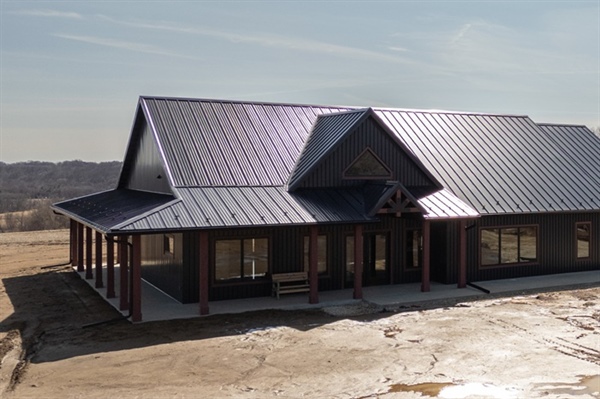How to Avoid Storm Chasers: Hiring a Legit Roofing Company After Hail

When hail pounds roofs across Rochester, MN, homeowners often find slick knock-and-talk crews promising quick fixes and deep discounts. Advice from industry leaders, such as Steve Gentry Construction, highlights the need to recognize warning signs—such as high-pressure sales tactics or unmarked vehicles—to avoid subpar work and costly callbacks.
This guide covers five essential steps every homeowner should follow. You’ll learn how to spot warning signs of storm chaser roofing scams, why hiring a local, licensed contractor protects your investment, which key questions to ask before signing a roofing contract, how verifying insurance, licensing, and references stops fraud in its tracks, and what to look for in warranty coverage and long-term support from local roofers.
Spotting the Warning Signs of Storm Chaser Roofing Scams
Storm chaser contractors often arrive unsolicited, immediately offering roof inspections after a hailstorm. They target neighborhoods recently affected by severe weather, using high-pressure tactics to secure contracts on the spot. Watch for door-to-door salespeople who demand immediate decisions or offer steep “storm special” discounts.
Legitimate contractors arrive in clearly branded vehicles, present local business licenses, and schedule follow-up meetings rather than pushing for on-the-spot signatures. They provide written estimates and respect your timeline for decision-making. Always ask for a formal proposal rather than signing any document presented on the spot.
Keep records of who you speak with and verify claims by checking online reviews and the Better Business Bureau. If someone claims to have worked on your street already, call previous customers directly. These steps help you avoid contractors who vanish once they collect a deposit or perform only minimal repairs before demanding more funds.
Why Hiring a Local, Licensed Roofing Contractor Protects Your Investment
Local contractors, such as Steve Gentry Construction, maintain a stake in the community’s reputation. They invest in long-term relationships, attend local trade shows, and adhere to state licensing requirements, unlike transient storm chasers who vanish once business slows. A valid roofing license confirms that a contractor meets training, insurance, and financial responsibility standards.
Working with a licensed professional ensures you receive workmanship warranties recognized by manufacturers. Local license numbers are public record; you can confirm credentials through your state’s licensing board online. This transparency protects you against liens and substandard materials that degrade your roof’s lifespan.
Community-focused roofers also collaborate with local suppliers, ensuring access to high-quality materials and prompt roof replacements. By choosing a licensed contractor rooted in Rochester, MN, you safeguard both your home and neighborhood standards, maintaining property values and avoiding the pitfalls of unregulated operators.
Key Questions to Ask Before Signing a Roofing Contract
Before committing, request a detailed written estimate that covers labor, materials, cleanup, and permit fees. Ask for a timeline of work phases, from tear-off to final inspection, and confirm who handles debris removal. Clear deliverables prevent surprise costs and delays.
Inquire about payment schedules. Reputable contractors typically require a deposit of no more than 10–20% and stagger payments based on completed work milestones. Avoid anyone demanding full payment upfront. Clarify what happens if unexpected issues arise, such as hidden deck damage discovered after tear-off.
Discuss change-order procedures and cost implications. If you choose to upgrade shingles or add ventilation, understand how additional charges will be documented and approved. A transparent contract structure ensures you maintain control over project scope and budget.
Verifying Insurance, Licensing, and References to Avoid Fraud
Always ask for a current certificate of insurance listing you as an additional insured. This protects you if a worker is injured on your property. Verify coverage dates directly with the insurer. Roofing is high-risk work; uninsured contractors can leave you liable for medical bills.
Check licensing details on your state’s contractor board website. Confirm that the license is active and inquire about any past complaints or disciplinary actions. An active, clean record signals consistent adherence to industry regulations.
Request at least three local references and follow up with homeowners whose roofs were repaired in the last year. Ask about punctuality, communication, and cleanup quality. Documented positive feedback from your neighbors offers the most reliable assurance against fraudulent operators.
Understanding Warranty Coverage and Long-Term Support from Local Roofers
Manufacturer warranties cover defects in materials, while workmanship warranties cover installation errors. Distinguish between each: a 50-year shingle warranty doesn’t cover a botched installation. Ensure your contractor offers a workmanship warranty of at least 5–10 years, reducing future out-of-pocket expenses.
Ask how warranty claims are handled. Local contractors can respond quickly if leaks or defects emerge, while out-of-town operators may be unreachable. Document all warranty details in writing, including response times and service fees.
Get in Touch with Steve Gentry Construction
Your roof is a long-term investment. Steve Gentry Construction stands behind both superior materials and supportive labor, from offering full warranty terms to providing ongoing maintenance programs that protect your home for years to come.
Steve Gentry Construction is ready to guide you through every step—from spotting early warning signs to securing comprehensive warranty support. Call us at 507-208-4501 or contact us for a no-obligation consultation and discover why your neighbors trust our local, licensed team with their roofing needs!